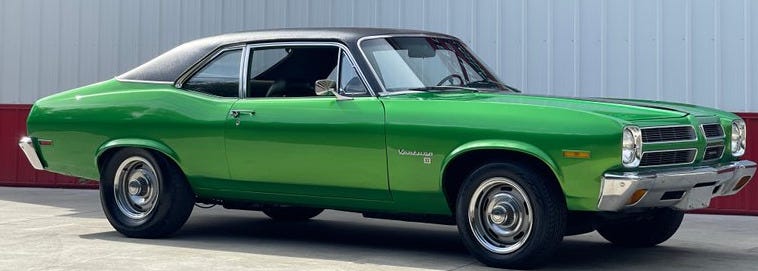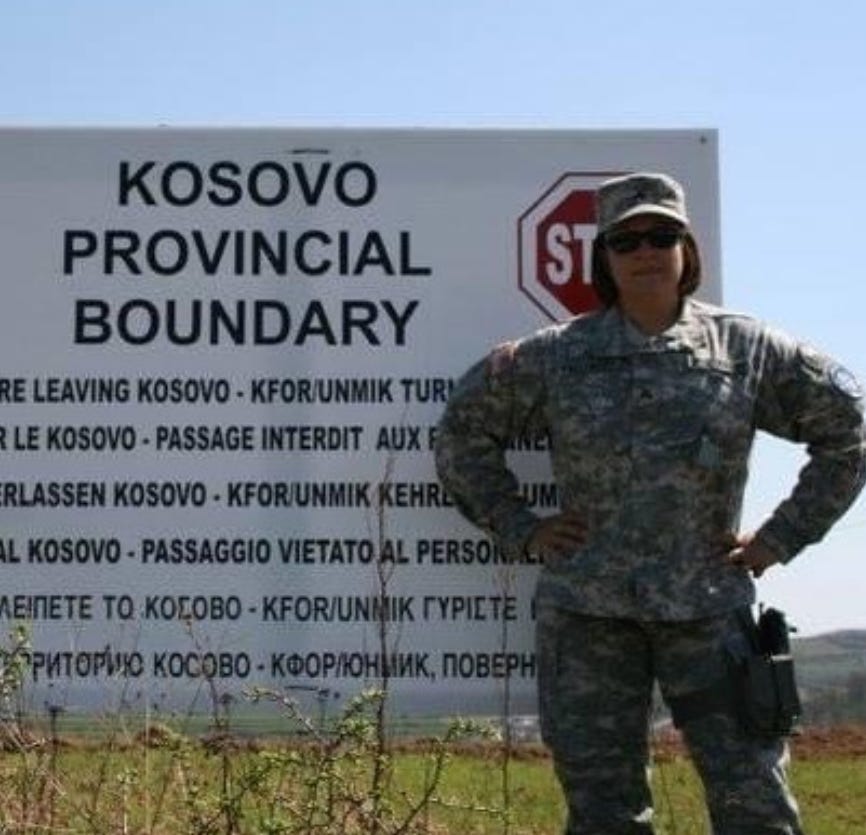
On January 24th, 1980, my family and I first stepped foot onto US soil. I was just a child, and I had very little comprehension about why we left the then-USSR and why my parents decided to bring me to America. I only knew a few things:
Five words in English: bed, comb, foot, hen, egg.
I was a “Jew,” and had a funny last name. That’s why I would get abused every day in kindergarten.
I would no longer face daily beatings at the hands whose names weren’t funny “Jew names.”
I could become anything I wanted when I grew up.
We first lived with my aunt and my grandpa in a one-bedroom apartment in Brooklyn. Before we landed in New York, my parents had to fill out a bunch of forms certifying that we wouldn’t be a public burden. We lived in Italy for several months, waiting for permission to travel to the United States. Once we received permission, all five of us were crammed into this tiny apartment while my parents hurried to learn English and get jobs.
After a few months, my father—an engineer with two Masters degrees (mechanical and electrical engineering)—went to work performing menial labor in a restaurant and at a construction site. He continued studying English, as did my mother, whose job also entailed forcing me to learn the new language too (at that point, I spoke Russian and a bit of French).
We moved into a roach-infested two-bedroom apartment across the street from my aunt and grandpa’s place. The building reeked. No matter how clean we were, the roaches were ubiquitous. I woke up in the middle of the night, walked into the kitchen for a drink of water, put my hand on the light switch, and screamed. My hand was covered in cockroaches!
My dad and my grandpa would go out every evening and dig through other people’s trash. That’s where I got clothes. That’s where I got toys. That’s where our furniture and our first television came from. My dad fixed up the things he found on the curbs. I didn’t understand what the kids in my neighborhood were saying most of the time. ESL education in the public school I attended wasn’t exactly effective. I just knew they had ice pops in the summer, and I sucked on ice cubes.
It was in that roach-infested dump that I learned what cereal was. I didn’t get to taste cereal too often. One of the first brands I remember my mother purchasing for me was something called Buddy Buddies (I think). I remember it looked sort of like kibble, but it was sugary, and I was excited to try something new.
It was there that I was introduced to broccoli, peppers, lettuce, and other vegetables. It was there that I tasted a Snickers bar for the first time in my life. My parents couldn’t afford much. We had either rice or potatoes and chicken nearly every night. We couldn’t afford fresh fruit too often, so I ate raisins and prunes.
My first impression when I walked into a supermarket was a jaw-dropping WOW!
I’d never seen so many various fruits and vegetables! The selection was mindboggling! There was cereal. There was milk—even strawberry and chocolate kind, which I’d never seen before in my life. There was an insane array of candy, most of which my parents couldn’t afford to buy, so they bought me Tic Tacs. Those things were still awesome!
More awesome still was my dad’s pride when he was able to purchase his very first car. He’d never had a car in the USSR, and after months of menial work, he bought a 70s model Pontiac Ventura.
It kind of looked like the above, but it was cream and rust colored with a brown top. It wasn’t nearly as nice as this. In fact, it was a hunk of junk, but it was ours. I claimed the backseat as my own and tried to populate it with dolls and other toys my grandpa found in other people’s garbage for me.
Eventually, we moved from the roach motel to a nicer two-bedroom apartment in Philadelphia. It was mostly a retirement community, so I didn’t have a whole lot of friends. But in Philadelphia, I was placed in an ESL class that focused on nothing but learning English. There was no science, history, or math. There was English, taught to us by an amazing teacher named Ms. Brodsky, who introduced me to books such as the Lord of the Rings series (she was a huge fantasy fan) and who gave us so much English grammar to practice every night for homework, I developed a massive callous on my middle finger from all the writing. I still have traces of that callous today.
I still support this model of learning, because if you don’t have English, you can’t understand the other topics taught. It took me six months of total immersion to graduate to a regular class and catch up on the other subjects.
My father had learned enough English to get an engineering job in Philly, as did my mom—also an engineer—and a few years later, we moved into our first house. It was a duplex in Northeast Philadelphia. It had three bedrooms and 2 1/2 baths. It had a little backyard, where I would sometimes play with the neighborhood kids, and it had an eat-in kitchen and a dining room!
This was a home we could never have bought in the USSR, and we were still amazed at America and all the opportunities available to a family that came here with nothing, that lived on furniture rescued from trash sites, and that still was afraid to spend an extra dollar on food other than basic rice, potatoes, and chicken.
That’s where I came from. That’s my background. And although I was embarrassed to have been born in the USSR (no one wanted to be known as a Russian—or in my case, Ukrainian—kid back then), I’m proud of everything my parents and I have achieved.
I graduated high school and was accepted to the Johns Hopkins University (as well as a few other high-end schools). I graduated from Johns Hopkins with a degree in International Relations.
My major was what interested me, not what limited subjects Jews were allowed to study, and I was also involved in theater. I played the piano as a child, but in the United States, I also sang and performed in musicals—not something I could have done as a scrawny Jew kid in the USSR.
I enlisted in the Army because I wanted to, not because I had to. I wanted to serve the country that gave me and my family so many opportunities—to buy a car, to buy a house, to get an education that didn’t involve daily abuse, to exercise our freedom of religion, and to obtain a higher education. To use our voices and vote our consciences, instead of being forced to vote for continued dictatorship.
My enlistment was a “thank you.”
So yes, I’m proud of my country and everything I’ve been able to achieve through hard work and perseverance.
I love my country. I love its system of government. I’ve lived in a socialist, authoritarian hell, and I don’t want to go back. I love the fact that we are free to choose our own representatives and our President, even if I don’t like who was elected. I love the fact that we are free to change that government if and when it becomes tyrannical.
That freedom isn’t easy. It demands courage. It demands moral strength. It demands a loud, insistent voice—something many are afraid to use.
Things are not perfect here, and there’s no use pretending that they are.
The checks and balances that are supposed to prevent authoritarian abuse are not functioning. Elected representatives are too scared of losing their power to stand up to executive abuses.
Truth and facts are smothered by disinformation and misinformation.
Accountability is smothered by entrenched ignorance and lack of critical thought.
Much like our populace refuses to hold its elective representatives accountable, and said representatives do whatever they feel will keep them in power (see: Polls show Americans largely oppose Trump's 'One Big Beautiful Bill,' but are more split on Medicaid, immigration specifics), the United States has stepped away from holding the world’s dictators and fascists at bay (see: Trump administration pulls US out of body investigating Ukraine invasion).
I’ve had to give several talks and write numerous articles about Ukraine and our support for the country’s struggle against invading Russian hordes.
I read with horror the continued violations of due process for illegal immigrants and even US citizens! Yes, I absolutely believe that you should enter this country legally, with authorization to stay. My family and I did. We waited, we filled out paperwork, and we entered legally. But I also believe that everyone deserves due process, much like everyone has the right to life, the right to property, and other fundamental rights that belong to every human being.
I am nauseated when media outlets pay millions of dollars to the White House under threat that their broadcasting licenses will be yanked. That’s why I’m not a fan of the federal government issuing licenses to media, essentially controlling their ability to do their jobs.
I’m floored when I see law firms bending the knee because an administration doesn’t like the way they do their jobs. That’s why I’m not thrilled that somehow executive orders have the power to limit the ability of attorneys to obtain access to government buildings and prevent any company that uses a law firm an administration happens not to like from obtaining federal contracts.
I’m also disgusted that government officials and media outlets refuse to publicize and actively hide the possibility that a President—no matter which side of the political aisle—may not be mentally competent to do the job for the American people.
Freedom depends on transparency. It depends on the ability to oppose that with which you disagree without fear of government retribution.
Government by its very nature is force, and it should be constrained by those who give it power willingly via their vote.
This idea is getting eroded, and that scares me too.
On this Independence Day, these thoughts and so much more are running through my brain.
Are we in trouble?
Are we still the land of the free?
Should we still celebrate independence?
Despite all these questions, we are still America. We are still free. We still have the power to stand up and oppose tyranny. We have the power to choose, to work, to achieve, and to succeed.
The fact that many do not, is not on America. It’s on us.
Celebrate your independence. Be grateful for it, because despite significant hiccoughs, we’re still us.





